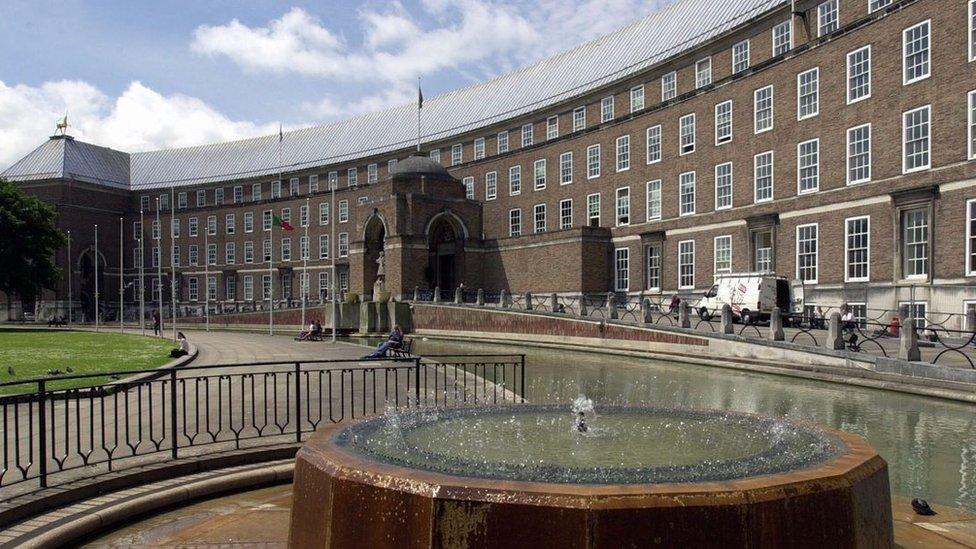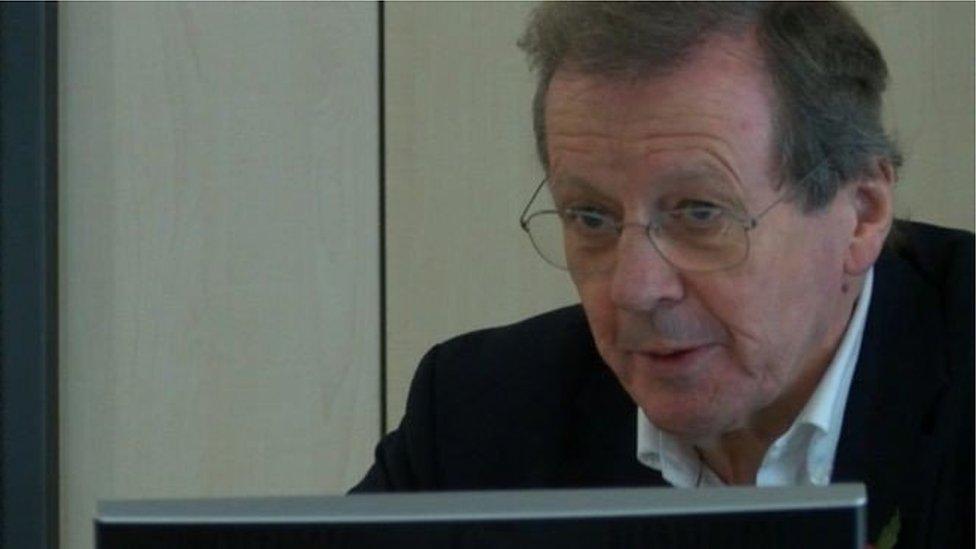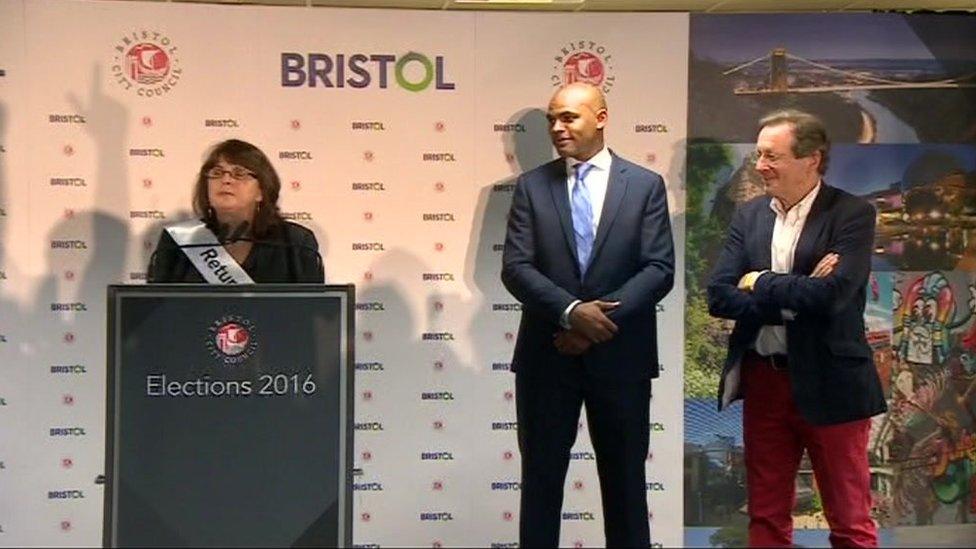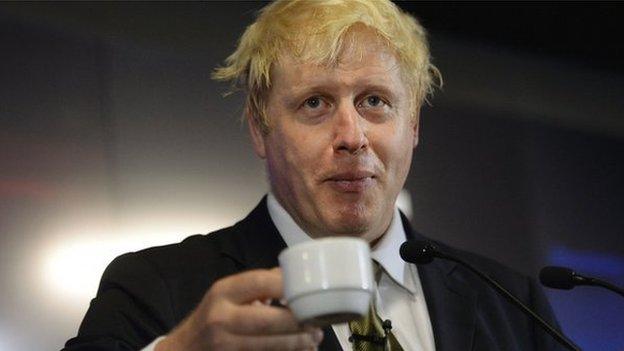Mayor role 'boosts visibility of leadership' report finds
- Published

Bristol City Council has been led by an elected mayor since 2012
The mayoral model has "boosted the visibility" of leadership in Bristol but it is harder to hold the role to account, a report has found.
Researchers also found councillors and communities had less say in terms of local-decision-making.
Despite this, more people believed there was a clearer vision for the city with longer-term policy development in place.
Critics say the role needs scrapping as it conflicts with the metro mayor.
Independent George Ferguson was the first city mayor when he was elected in 2012.
He believes a more democratic approach is needed, with a cross-party cabinet system.
"I always supported the role of a metro mayor," he said.
"When one looks at Manchester and Birmingham and the strength of the two Andys, they are representing their region, that makes more sense.
"Having a Bristol mayor which is in semi-competition with the greater Bristol and Bath city region ceases to make any sense."

George Ferguson was the first city mayor, elected in 2012
Leader of the Conservatives, councillor Mark Weston, initially supported the role as it would bring more stability to the annual council elections and end political in-fighting.
But he said he now wanted the role scrapped.
"The mayoral role became more autocratic," he said.
"We saw this under George Ferguson and we are seeing this in spades under Marvin Rees.
"This executive control is getting out of hand."
The current mayor, Labour's Marvin Rees, has been approached for comment.
'Lower trust scores'
The report was produced by researchers at University of Bristol and University of the West of England.
Its aim was to discover the strengths and weaknesses of the new system, rather than who was in office.
Co-author Robin Hambleton said he hope the findings would help residents reach an "informed view" about whether they wanted a mayor or not.
Due to coronavirus, all mayoral and local elections have been postponed for a year.
- Published7 May 2016

- Published6 November 2014
